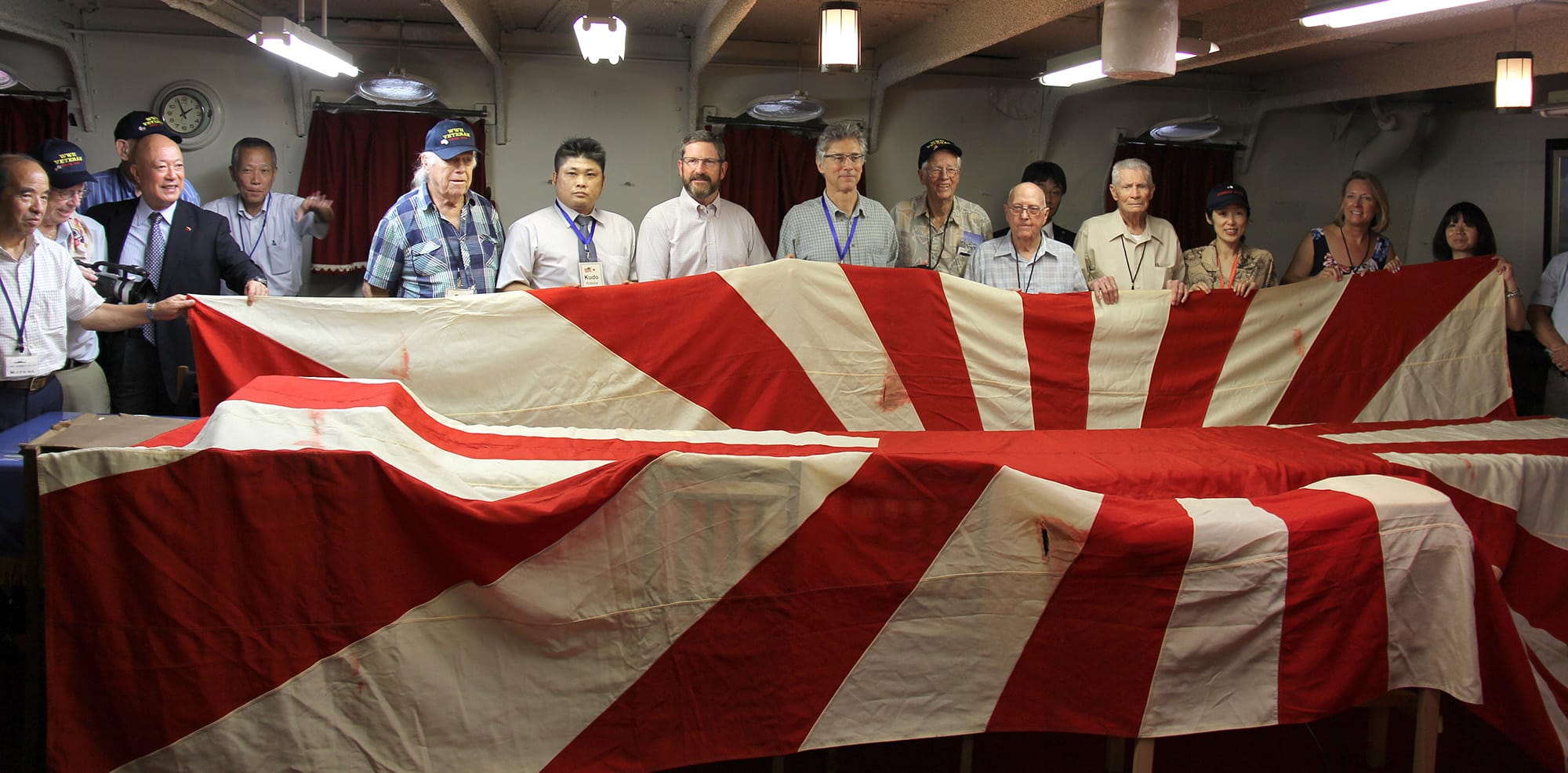A massive flag that rippled above a Japanese battleship more than 110 years ago is back aboard a warship in Yokosuka.
Bill Koehler presented it to a Japanese heritage society last month in a ceremony that came with surprises for people on both sides of the handoff.
The Vancouver man was among a group of Northwest veterans and history enthusiasts who returned “rising sun” flags that American servicemen brought home after World War II.
Most of those 70 flags had been Japanese soldiers’ personal keepsakes, signed by friends, family members or classmates. Most were taken from bodies of Japanese soldiers who were killed in combat in the Pacific.
Koehler’s contribution to the project was different. Measuring about 17 feet by 11 feet, it had flown from one of the Japanese battleships that defeated the Russian fleet during the 1905 Russo-Japanese War.
It was claimed as a war trophy by a U.S. Marine Raider after World War II during the occupation of Japan. He took it from the Mikasa, a retired Japanese battleship that had been decommissioned in 1923 and converted into a floating museum.
The 92-year-old veteran recently gave his trophy to Koehler, president of the U.S. Marine Raider Foundation, so he could return the Mikasa flag to Japan.
Koehler did just that last month, after making arrangements with the Mikasa Historic Preservation Society. Koehler brought the flag aboard the Mikasa in a wooden box made by craftsmen at Vancouver’s Friends of the Carpenter.
The surprises started when people around the huge table began to carefully ease the flag from the box of oak, ebony and rosewood. There was “a look of absolute amazement” on the faces of their hosts, Koehler said.
That’s because the Japanese weren’t expecting to see a battleship flag. They already had the flag that had flown over the Mikasa; it had been put away for safekeeping before the U.S. occupied Japan.
So Koehler was surprised to learn that he’d never had the Mikasa flag.
“They knew it all the time,” he said.
And the Japanese were surprised to see the huge red-and-white naval ensign that had just been placed in their hands; it was identical to their Mikasa flag. It could have only come from the Asahi, another battleship that was part of Japan’s victorious fleet in 1905.
That flag was retired and placed in the museum, even though the Asahi was pressed back into service during WWII. Too outdated to serve as a battleship, the Asahi was converted into a repair ship and was sunk by an American submarine in 1942.
“What the Japanese have left of the Asahi is that flag,” Koehler said.
The old Marine Raider passed up a pretty lucrative payday when he placed the flag in Koehler’s custody. After checking with collectors, Koehler learned that the flag could have fetched $100,000 or more in the memorabilia market.
The Japanese press kept asking why the Marine wanted to return the flag, Koehler said. And Koehler kept offering the same answer.
“It was the right thing to do.”





